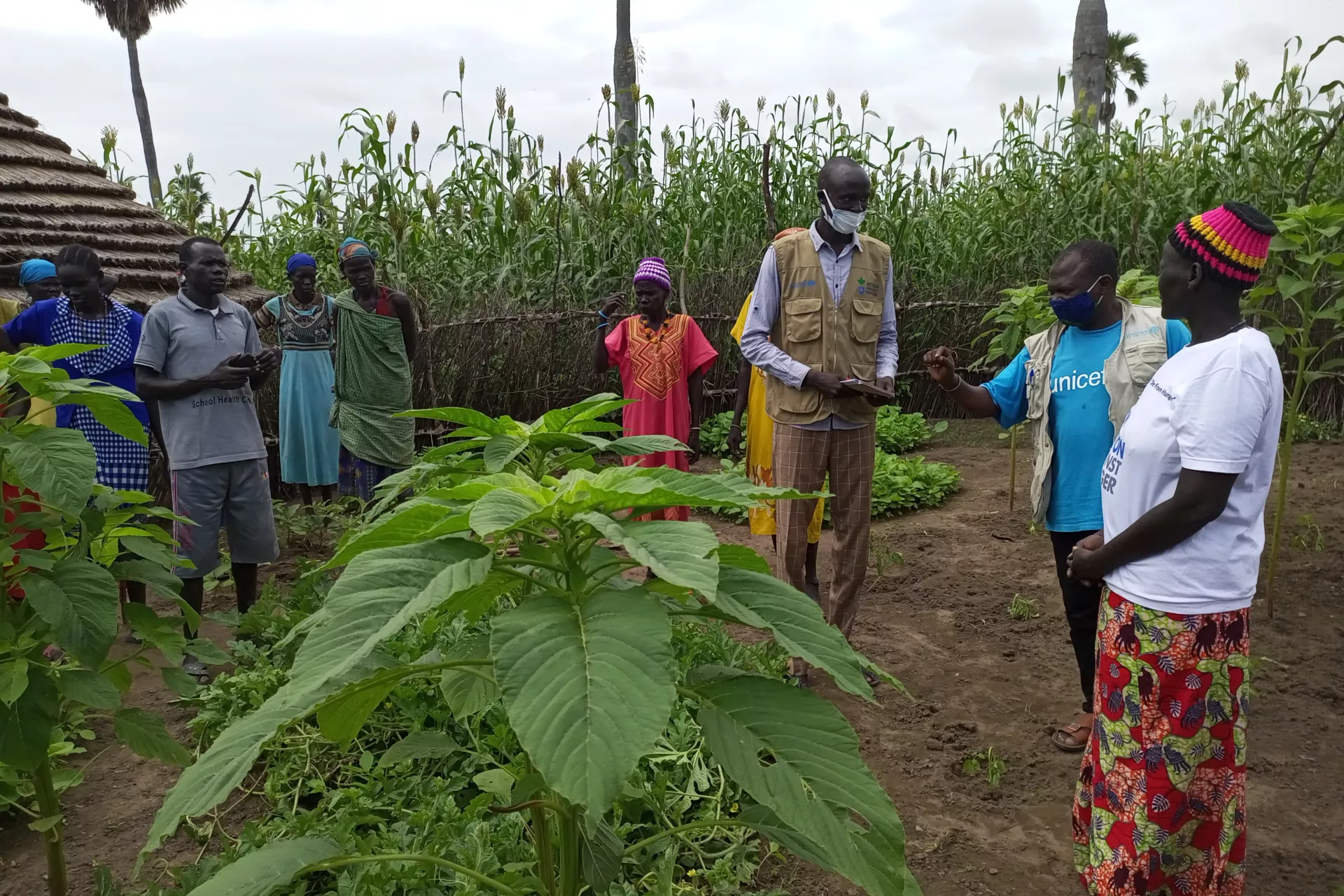Women championing the fight against malnutrition
Backyard vegetable gardens help women attain self-reliance and supplement local food markets

Kuajok 22 September 2021: While a large proportion of South Sudan’s population struggles to feed their families amidst conflicts and natural disasters, still a proportion of it is making strides to attain self-reliance through local livelihoods.
In Alek, 50 km north of Kuajok of Warrap State, Ayak Akuei, a mother of five, is one of the rural women who have taken advantage of the prevailing peace and support from humanitarian agencies to invest in an ever-expanding backyard garden. By ten o’clock in the morning, the market is full of a variety of green vegetables from different local producers. However, Ayak has held her special place as one of those who have continued to make her supplies to Alek market all year round.
“During the dry season, I focus on the backyard garden and keep watering the crops,” Ayak explains. She lives about 500 meters from a hand pump where she fetches water every evening to irrigate her vegetables. “Together with my children, our energy never goes to waste. Every month we harvest purslane (locally known as rejila) which grows easily,” she adds.
In 2021, with support from Action Against Hunger, ten more women from Alek Community have joined hands with Ayak – to learn and cultivate bigger areas of land. “These women have been coming to me every time to see what I have done. This year, with seeds supplied from Action Against Hunger, I am sure we will make a little more money as a group,” she says, with a twinkle of satisfaction in her eyes.
To keep the marauding cows and goats away, the women have fenced in their gardens using dry thorny shrubs and wood, leaving around a meter-wide walkway to access their gardens. This walkway is also sealed off when no one is in the garden, to keep it safe. Together they have planted a variety of vegetables that includes jute-mellow, a vegetable popular for its easy-to-prepare nature.
“By working jointly in our gardens, I am sure we can uplift more families from the current issue of people going hungry in some homes,” Ayak states determinedly. Action Against Hunger South Sudan has since given the group additional seeds including amaranthus, eggplants and tomatoes. “The women in my community are generally hardworking. We fetch the water together and water our joint garden but each one has started their own kitchen gardens,” she says. Ayak is working to make sure the group she mentors start their own kitchen gardens.
Year on year since 2013, data reported by OCHA shows that more than 50% of the South Sudanese population has continued to live food insecure. This has been compounded by political conflict, intercommunal violence, and weather changes over time.


For Ayak, there is more to celebrate. “I have sent two of my children to secondary school using money I got through this small garden and my children take three nice meals every day,” she says.
With support from UNICEF, Action Against Hunger is continuing to work with communities in Alek to alleviate malnutrition, while integrating kitchen-gardening through the Mother Support Groups to supplement local food reserves.
UNICEF thanks the donors supporting our Nutrition Programmes, such as the European Union, European Humanitarian Aid (ECHO), UK FCDO, USAID, Federal Republic of Germany through KfW Development Bank, and the Government of Canada.




